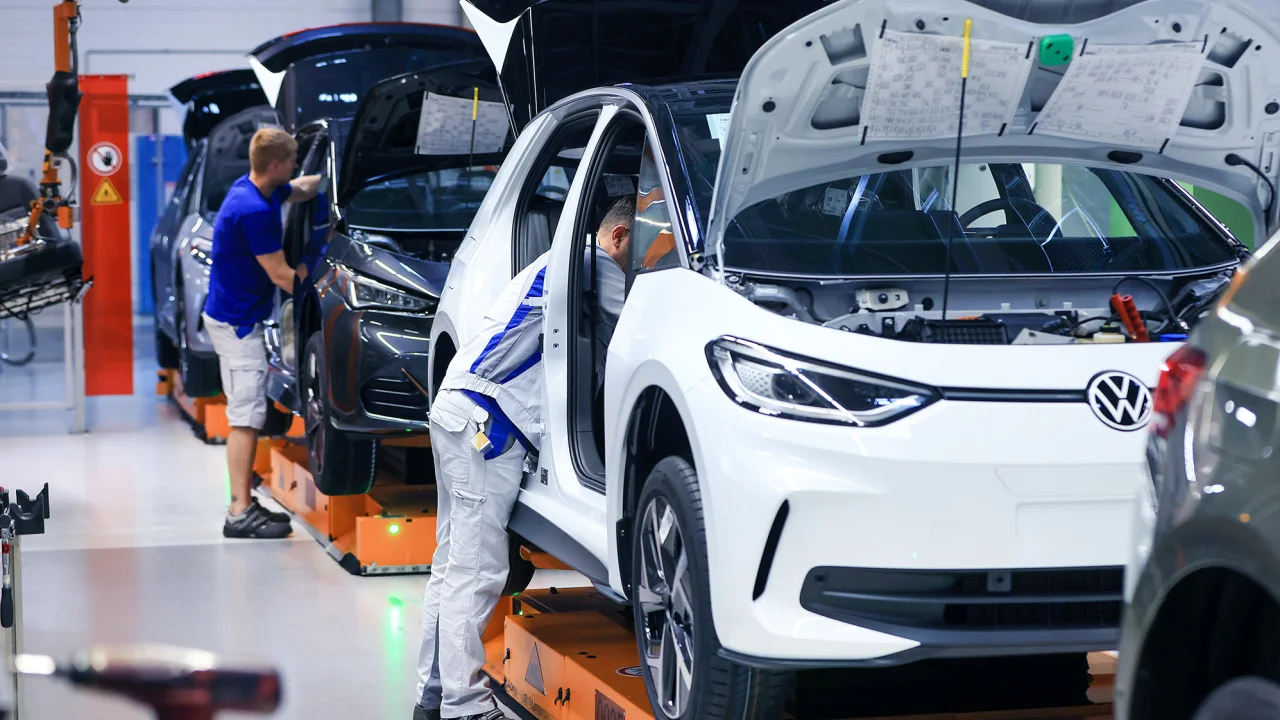Industrial production in Europe’s biggest economy fell 1.5% in June compared with May, driven by a 3.5% drop in Germany’s vast automotive sector.
The decline in German industrial output, much steeper than forecast by economists, raises the risk that the manufacturing heavyweight will contract again later this year, potentially falling back into recession.
The construction sector, where output shrank by 2.8%, also had a negative impact on overall industrial production, the country’s statistics office said Monday.
Germany only just emerged from a recession in the April-to-June period as gross domestic product (GDP) was flat compared with the previous quarter, but the latest provisional data suggests the slight improvement in the economy’s fortunes may not last.
“We expect a drop in industrial output to be one of the factors causing a renewed contraction in German GDP in the second half of this year,” Franziska Palmas, senior Europe economist at Capital Economics, wrote in a note.
Jörg Krämer, chief economist at Commerzbank, also predicted a fall in GDP later this year.
The German car industry, which accounts for around 5% of the economy, is struggling to recover from the blow dealt by the pandemic and snarled supply chains.
Some 2.2 million cars rolled off production lines in the first half of the year, according to the German Automotive Industry Association. Although that was a significant increase compared with the same period in 2022, production is still 10% lower than in the first half of 2019. Reaching the pre-pandemic level of output may take a while yet.
Բաժանորդագրվեք մեր ալիքին Telegram-ում







